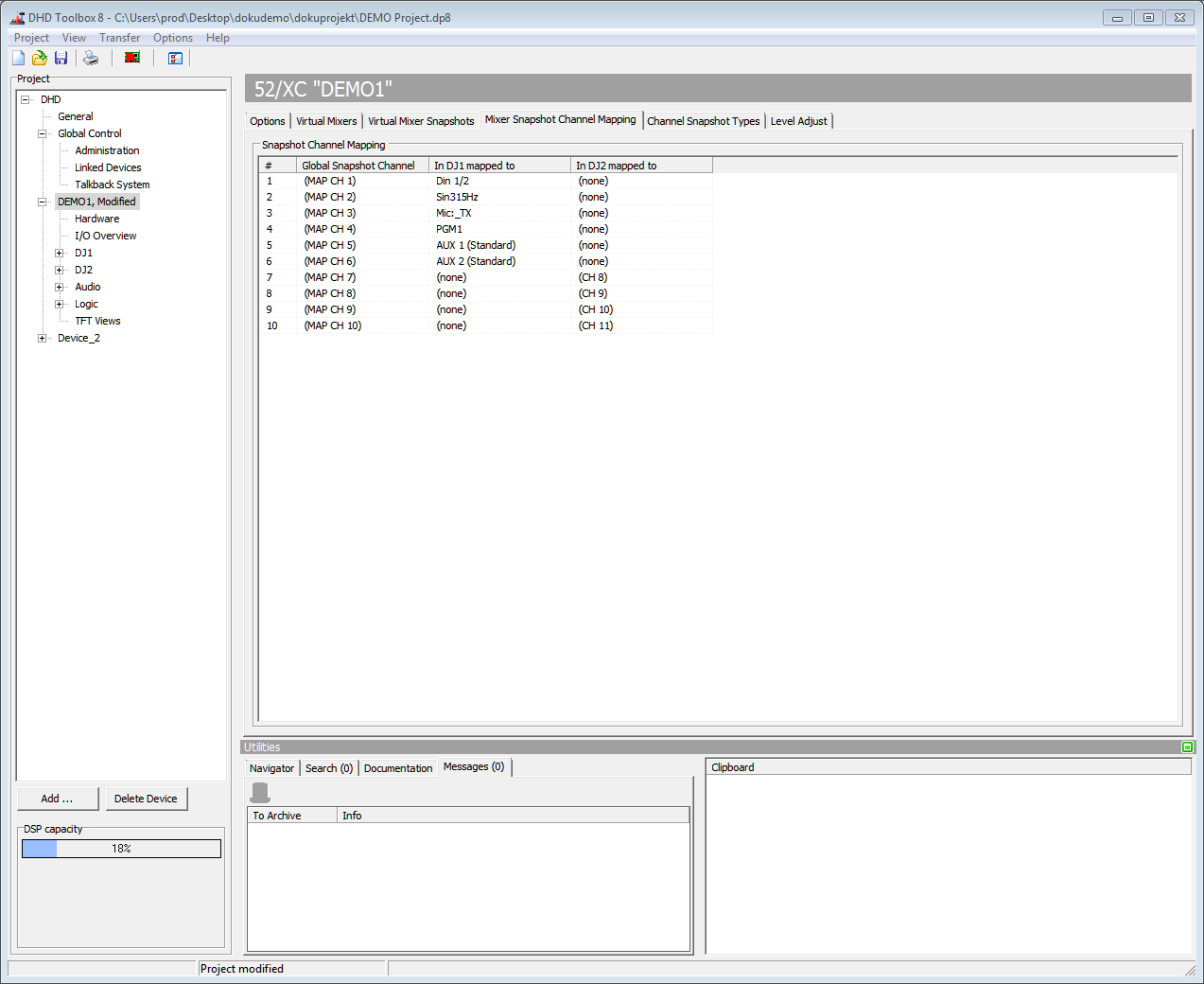Mixer Snapshot Channel Mapping
You can save a mixer snapshot on a virtual mixer and load it on an other virtual mixer. If you want to do that, it is necessary to define which fader channels of the virtual mixers belong to which channels of the mixer snapshot. You don't need to take care about the channel mapping if you only want to use mixer snapshots on the same virtual mixer where they were saved, because this mapping is done automatically.

The left column of the Snapshot Channel Mapping list shows consecutively numbered Global Snapshot Channels. Their numbers are important for the internal process and can not be changed.
In the Global Snapshot Channel column it is possible to enter a name for every snapshot channel. This name is not used anywhere else.
The following one, two, three or four columns (depending on the number of virtual mixers) contain the fader channels of the virtual mixers. To change the assignment of the fader channels select a cell of the snapshot channel you want to edit. Afterwards, click this cell again, the cell changes into a drop-down menu and you can select another available fader channel.
If you want to assign an already assigned fader channel to a snapshot channel, you first have to release it. That works like the procedure mentioned above, but do not select an other fader channel - select (none). Now the fader channel is not assigned and can be assigned to an other snapshot channel.
Example:
There are two virtual mixers. One is named DJ 1 and the other one is named DJ 2 (see the picture above). In the virtual mixer DJ 1 a fader channel DJ1 MIC exists. This fader channel is assigned to snapshot channel 1. In the virtual mixer DJ 2 a fader channel DJ2 MIC exists. This fader channel is assigned to snapshot channel 1, too.
That means, if you now save a mixer snapshot on DJ 1 and load it on DJ 2, the settings saved for the fader channel DJ1 MIC of the virtual mixer DJ 1 are applied for the fader channel DJ2 MIC of the virtual mixer DJ 2.